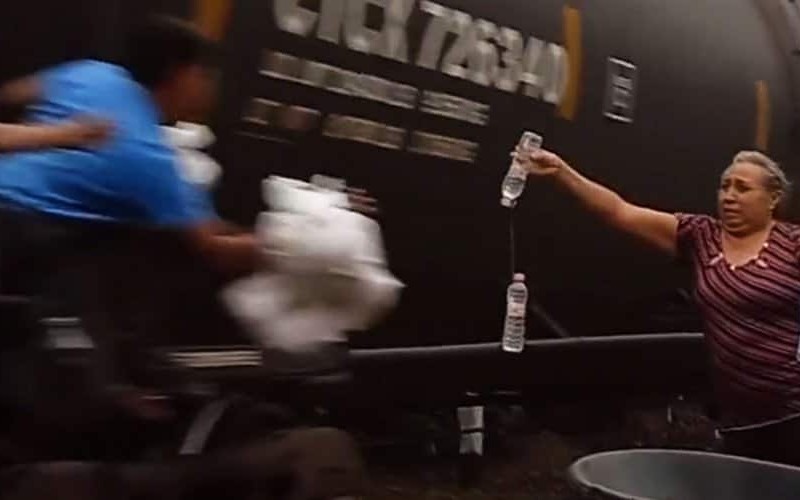Las Patronas de La Bestia: A Brief History
For 28 years, Las Patronas have provided food, water, and other assistance to Central American migrants traveling on the freight train known as “La Bestia” without ever asking for anything in return.

Imagine living out the life experience of basic survival and one day deciding to set off for the potential of something better, anything better, aboard La Bestia, also known as the “Train of Death.”
This well-documented dangerous, and harrowing experience is the route for many Central American migrants traveling through Mexico on their way to the United States. There isn’t much to look forward to on the journey except a moment or two of respite from angels in the form of Mexican women known as “Las Patronas.”
Las Patronas is a group of women in Mexico who, for 27 years, have provided food, water, and other assistance to Central American migrants traveling on the freight train known as “La Bestia.” The group began in the mid-1990s in the small town of La Patrona in the state of Veracruz, Mexico, which coincidentally ended up becoming the perfect name for a group of women who decided to take on a humanitarian crisis of epic proportions.
The founding of Las Patronas is attributed to a woman named Norma Romero Vázquez, who witnessed a group of Central American migrants passing through her town on La Bestia without food or water. By the time she returned home, she had given away all her groceries to the hungry travelers. She and a group of her friends then began providing the migrants with food and water, which was the beginning of their work.
Since then, the group has grown and become an established organization with a dedicated team of volunteers, and the subject of numerous documentaries.
They collect donations from the community and use their own resources to prepare food and pack it in plastic bags that are then tossed to the passing trains. They also offer other assistance, such as clothing and medical aid, to those in need.
The work of Las Patronas is dangerous and physically demanding. They stand near the train tracks and wait for La Bestia to pass by, then toss food and supplies to the migrants. The women of Las Patronas have faced many challenges, including harassment and threats from local authorities and criminal groups, but they’ve continued their work despite the dangers.
Las Patronas have become a symbol of hope and solidarity for many Central American migrants traveling through Mexico on their way to the United States.

Translation: I am Salvadorean and before leaving my country I was told that Mexicans are bad people. Since I left, the Mexicans I met and know are excellent and marvelous. They have so much empathy with us, those of us who pass through their country. They have large hearts, and I have lived it.
Their work has gained international attention, and they have been recognized with various awards for their humanitarian efforts. 27 years later, they continue to do the work of providing whatever relief they can for an immigration problem U.S. and Latin-American leaders refuse to solve.
Their name comes from their town, but for the migrants, who grab potentially life-saving food and water from women they will in all liklihood never see again, “patron saint” couldn’t be more perfect of a name.
Las Patronas can be found on their Instagram account (@laspatronas_ddhh) and their website where information on how to support their efforts can be found. You can also follow them on TikTok here.




